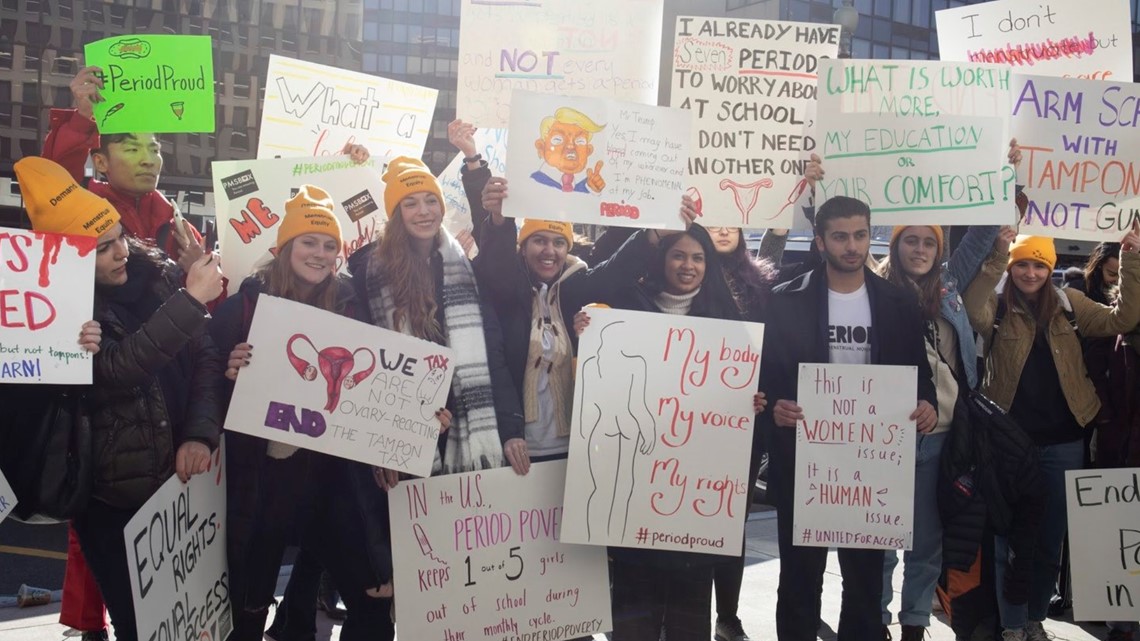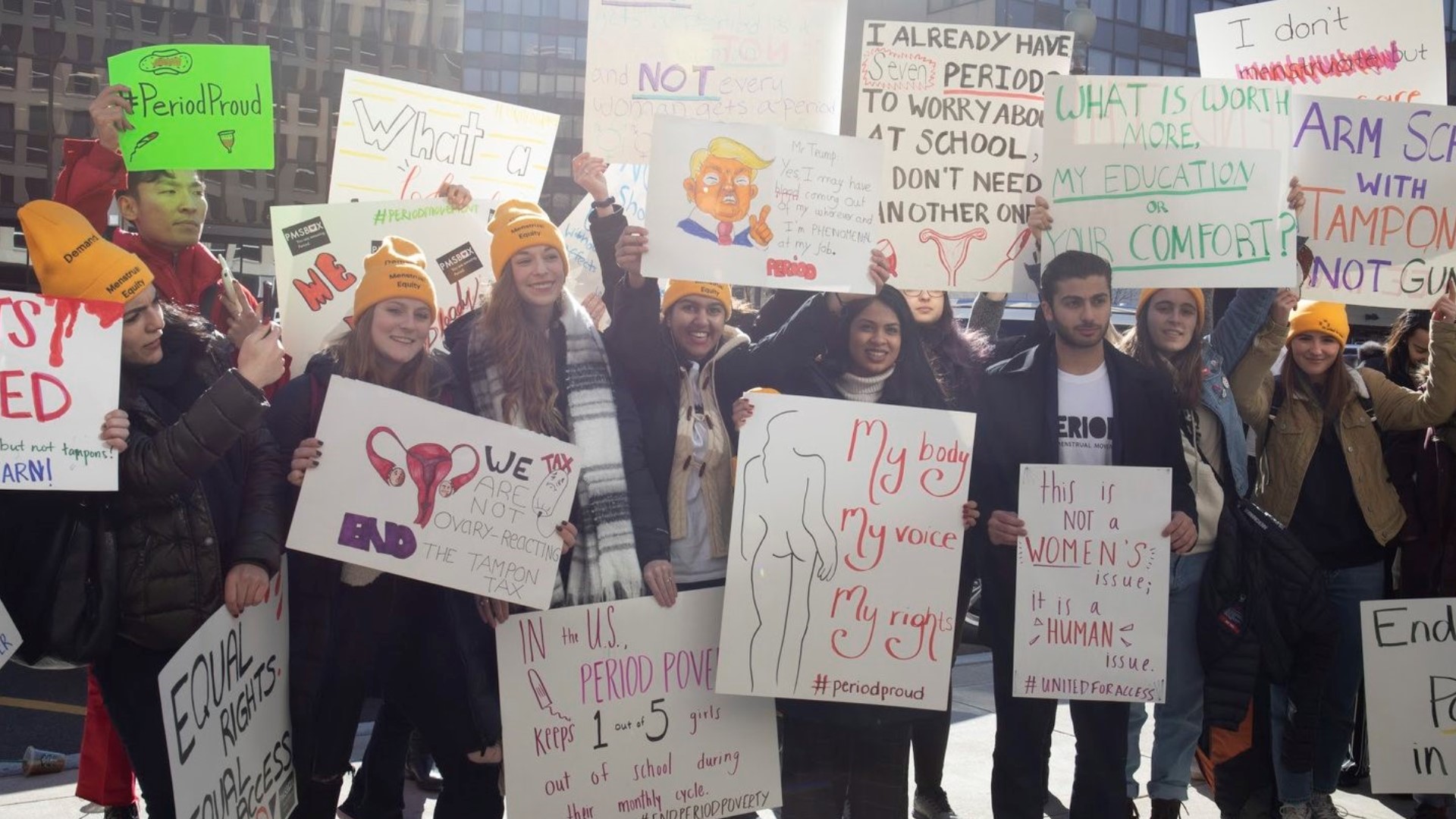Lots of people have fallen on hard times over the past year, making certain necessities harder to come by.
Millions rely on feminine hygiene products that many would consider a necessity, but it is hard for a lot of people to talk about those products or menstruation.
Anusha Singh, a senior pre-med student at The Ohio State University is hoping to change that.
For the past few years, she has served as the National Campaign Lead for the OSU chapter of Period, a non-profit hoping to fight Period Poverty.
Period Poverty happens when people who menstruate do not have access or cannot afford menstrual products.
“This issue is not talked about enough because of the stigma attached to it,” she said.
“People who menstruate are often forced to resort to unhygienic methods of maintaining their periods. That’s terrible for so many reasons.”
Singh said that people who cannot afford feminine hygiene products often use alternatives like toilet paper, cardboard and even trash.


Those alternatives can lead to issues like toxic shock syndrome and even death.
When she first heard about Period Poverty, she knew she had to help in whatever way she could. She help put organize press conferences, rallies and demonstrations.
Period caught the attention of a few presidential candidates, who ended up sharing their support for the movement on social media on October 19, which is National Period Day.
Period even got Governor Mike DeWine’s attention.
He signed a law to repeal the tampon tax that classified hygiene products as luxury items making them more expensive.
Anusha knows how touchy her cause is.
“The second I mentioned the word period on a house floor, it was so shocking to me—the squirming the shame the blushing.”
She knows it’s much bigger than a word, though, and she plans on continuing to help lead hundreds of young people like her.
Anusha has and will continue to help lead hundreds of young people like her.
“It’s about human dignity, right? Nobody should have to feel like their period is a barrier to them,” she said.
“Your voice matters. You can start challenging the stigma right now.”

